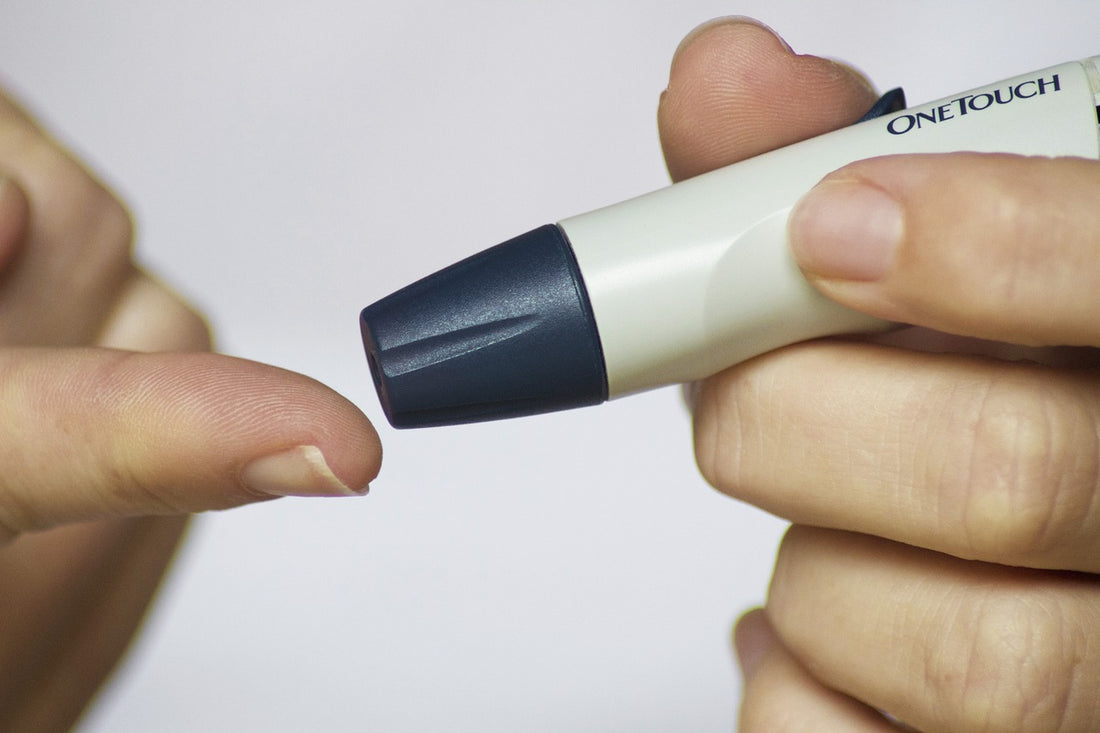Living with diabetes often means saying no to sweet treats, but what if there's a natural sweetness you can say yes to?
This article dives into the possibilities of honey in a diabetic diet. Imagine indulging in the gentle, comforting sweetness of pure honey, while also taking care of your health. We're here to explore how this simple pleasure from nature can be a friend to your blood sugar levels and a delightful treat for your taste buds. Let's unravel the role of honey in managing diabetes together.
What is diabetes?
Diabetes is a condition that happens when the blood sugar (glucose) in the body is too high because the pancreas does not produce enough insulin, or the insulin it produces isn't effective. Insulin helps to control the amount of glucose in the bloodstream. If the body doesn’t have enough insulin, it will shut down its ability to process glucose from food and begin storing excess sugar as fat instead. This is why diabetes patients tend to gain weight and eventually get obese.
The scientific name for diabetes is diabetes mellitus but is commonly known as just diabetes. It is a serious illness that weakens the immune system and can lead to severe complications, such as amputations and vision loss.

What causes diabetes?
Diabetes can be caused by genetics or lifestyle factors like eating too much sugar, being overweight, physical inactivity, and others. It can affect all ages, races, and genders. It can contribute to the development of heart disease and kidney disease, both significant contributors to mortality in the United Kingdom. Projections suggest that by 2030, approximately 1 in 10 people worldwide will be affected by diabetes.
According to Mayo Clinic, family history could be a factor in all types of diabetes, environmental factors, and geography can add to the risk of type 1 diabetes, race or ethnicity may increase the risk of developing type 2 diabetes and being overweight could increase the risk of prediabetes, type 2 diabetes, and gestational diabetes.

Can people with diabetes eat honey?
A Study from University of Agricultural Sciences and Veterinary Medicine in Romania found that, honey can be useful for managing diabetes. Consuming it was able to lower blood sugar levels and improve insulin sensitivity (the ability of cells in the body to process glucose).
In another study, researchers found that raw honey helped reduce blood sugar levels in rats with type 2 diabetes by about 20%. It also reduces cholesterol and triglyceride levels. These results were promising enough to warrant further investigation into whether it could be effective for humans as well.
From all these studies, we can conclude that unprocessed forms of natural sweeteners are beneficial for both diabetic patients and those without diabetes.
Honey, which is a natural sweetener, has a lower glycemic index (GI) than table sugar, meaning that it helps lower blood pressure and cholesterol levels, losing weight, and improving diabetes management.
The type of carbohydrates (fructose and glucose) in honey are also easier for the body to digest than table sugar, so it has less of an impact on raising blood glucose levels.
So the answer to the question, can I eat honey if I have diabetes? Is yes. But like any other sweetener, it is advisable to consume it in moderation.
Here’s how pure honey can help with diabetes
Raw honey contains glucose and fructose, both of which are natural sugars, which can be absorbed more slowly than processed sugar.
This means that the insulin in your body won't spike as quickly when you eat it, so your blood sugar levels will remain steady long enough to give your pancreas time to produce more insulin if needed.
How to take honey for diabetes
As a diabetic patient, it is very important to ensure that the honey being ingested is pure, that is unprocessed as processed honey most likely contains added sugars.
Commercially processed cheap honey, such as that found in supermarkets, has lost most of its properties and should be considered fake. It can be very harmful to diabetics.
Only always use raw honey. This is unpasteurized honey that has not been heat treated, making it free of chemicals and antibiotics harmful to humans.

Conclusion
Embracing the natural sweetness of honey can be a small but powerful step in your journey with diabetes. It's not just about managing your condition; it's about enriching your life with wholesome choices.
For individuals with diabetes, adhering to prescribed medication and promptly addressing any diabetes-related issues through regular medical consultations is crucial. Untreated diabetes can lead to severe health complications, such as heart disease and stroke.
Let every spoon remind you that you deserve the best, purest ingredients. Your journey towards better health is sweeter with us. Click here to get yourself a jar of pure goodness today!
Reference
National Library of Medicine (2022). Potential of Natural Honey in Controlling Obesity and its Related Complications. Retrieved from https://www.ncbi.nlm.nih.gov/pmc/articles/PMC9585569/
Mayo clinic (2023). Diabetes. Retrieved from https://www.mayoclinic.org/diseases-conditions/diabetes/symptoms-causes/syc-20371444

